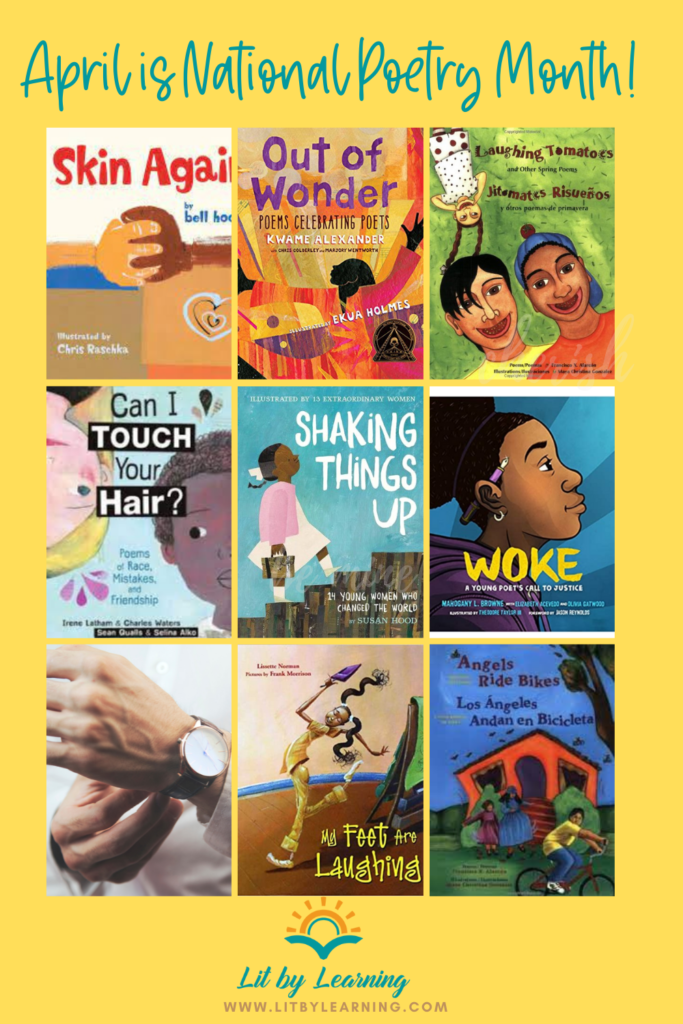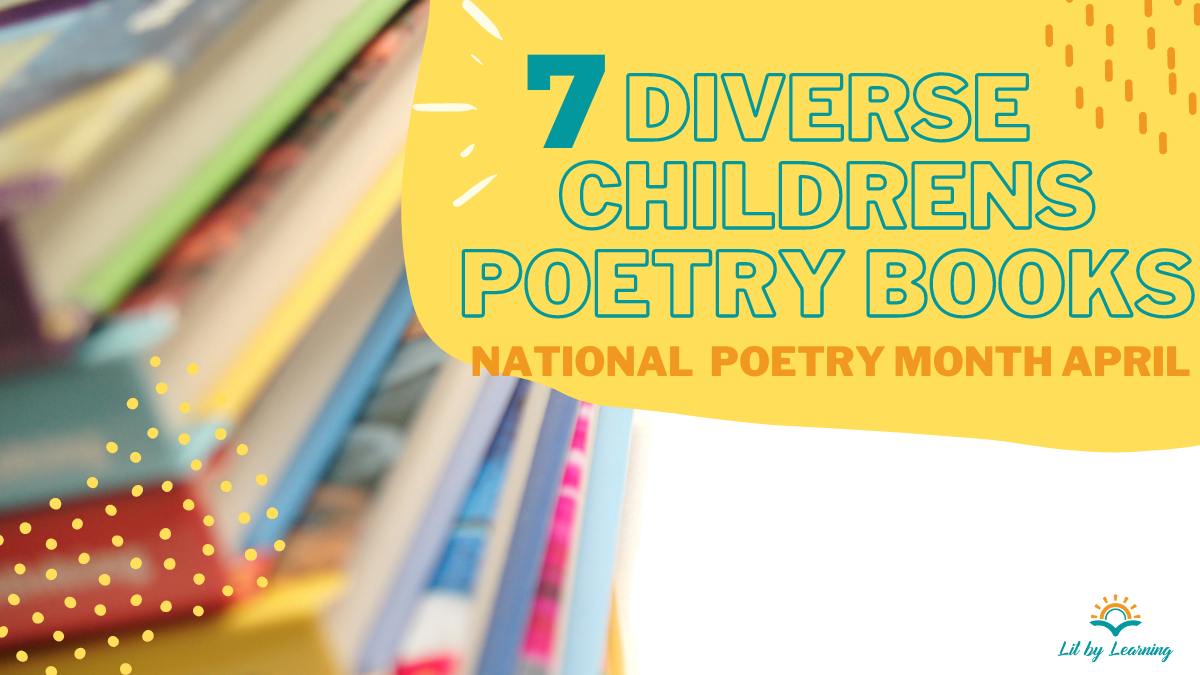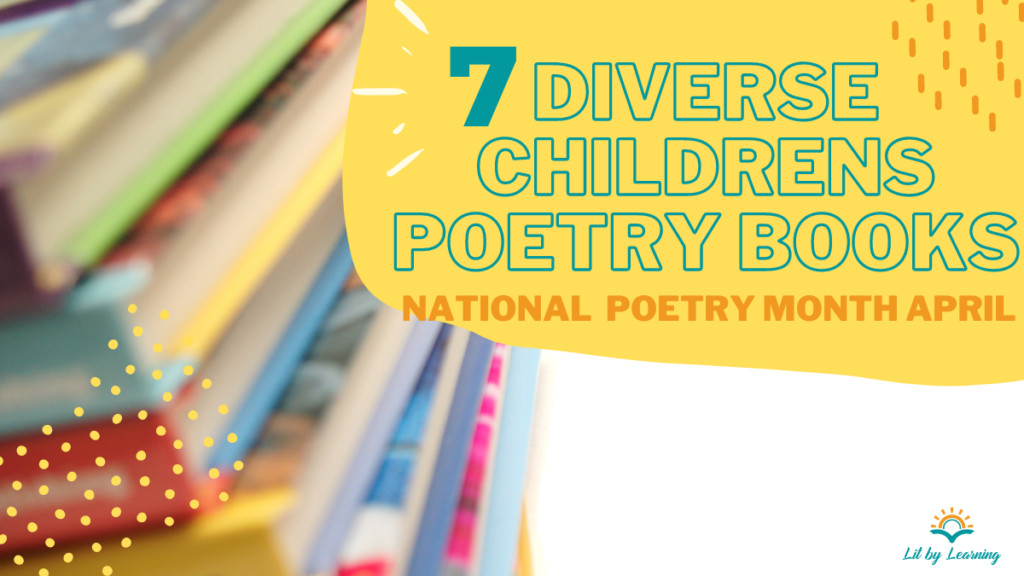
Is your classroom all set for National Poetry Month April? Do you have the books and resources you’ll need to go deeper with your elementary students? These 5 poetry books will bring life to your classroom library – and your teaching!
A note on teaching poetry
How do I say this? Teaching poetry is exactly what you make it to be. If you focus on poems that are all silly rhymes then…. that’s what it’ll be. I’ll be honest: I find this boring and trite. I think it cheapens what poetry actually is – the power that even short, simple poems can actually hold.
That said, I like to teach poetry deeper. Even with very young students, I like to examine questions that I believe get to the heart of the power of poetry. Here are the essential questions that I return to each year – during National Poetry Month April and beyond.
- What is the unique purpose of poetry? How is it different from other types of writing?
- What are the rules of poetry? (hint: none)
- What tools do poets use to affect their readers?
- (How) can we use words to describe and change our world?
How I chose these children’s poetry books
The 7 poetry books I’ve highlighted below are ones that I own and have used in my own classroom. I like them; kids like them. They are illustrated, approachable and whimsical – AND invite deeper discussions. They’re also diverse in several important respects:
- Author Identity: The poets are from a diverse set of racial and linguistic backgrounds.
- Poetry subjects: The poem are about a wide variety of relatable ideas, from the change of seasons to current issues.
- Poets’ tools highlighted: These books highlight a variety of poets’ tools, from alliteration to rhythm to personification.
Now – to the National Poetry Month April children’s poetry books!
Children’s Poetry Book 1: Out of Wonder
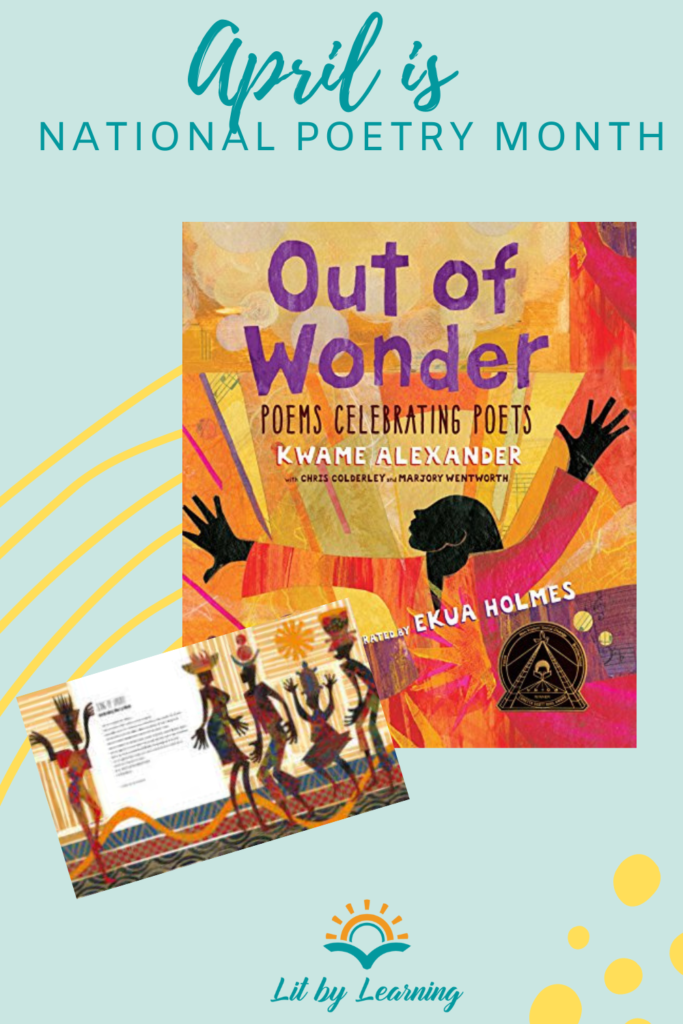
These brilliantly illustrated poems from Kwame Alexander, Chris Colderoy and Marjory Wentworth honor renowned poets. It’s a beautiful variety of poems, including several poems about poetry that are sure to inspire young poets in National Poetry Month April – and beyond!
“Our lives are made from these things
and when you desribe them.
you discover magic. It’s the way
your pen becomes a want in your hand
and this may be the only thing you need to know.”
“How Billy Collins Writes a Poem” by Marjory Wentworth (Out of Wonder)
Children’s Poetry Book 2: “Just Like Me”
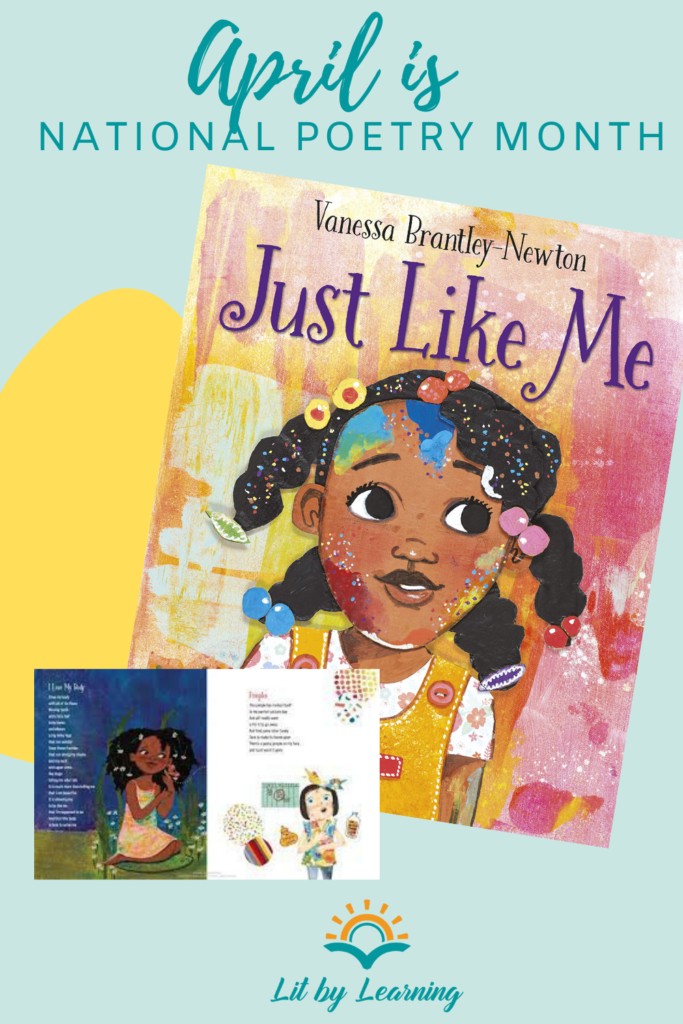
This second pick for National Poetry Month April is a visual treat by author-illustrator Vanessa Brantley-Newton. Your young poets will relate to the poems’ subjects: everything from feeling different to standing up for women’s rights.
I am a canvas
Being painted on
By the words of my family
Friends
And community
“Canvas” by Vanessa Brantley-Newton (Just Like Me)
Pair this book with my Vanessa Brantley-Newton author study for an even richer experience!
Children’s Poetry Book #3: Skin Again
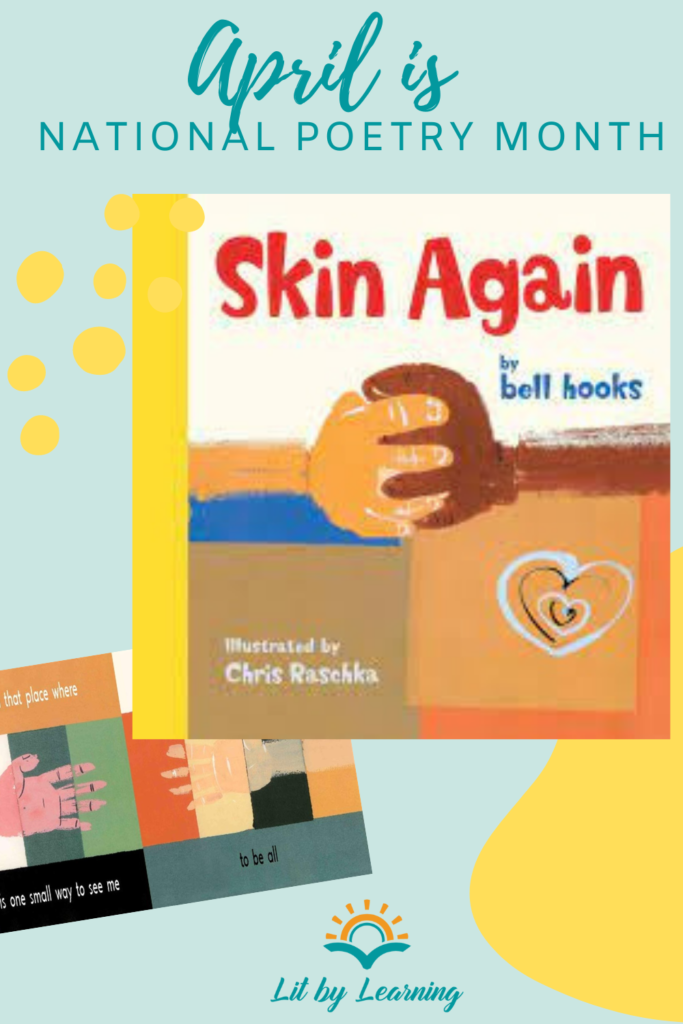
The words and the illustrations work together to bring this bold bell hooks poem to life. It elegantly addresses stereotyping and prejudice – and invites readers to dig deeper when getting to know someone new. I used this book as the basis for an entire poetry mini-inquiry. We paired poems to each of its stanzas while crafting poems about ourselves and it. was. beautiful!
The skin I’m in is just a covering. It cannot tell my story. If you want to know who I am, you have got to come inside and open your heart way wide.
Skin Again by bell hooks
Children’s Poetry Book 4: My Feet are Laughing
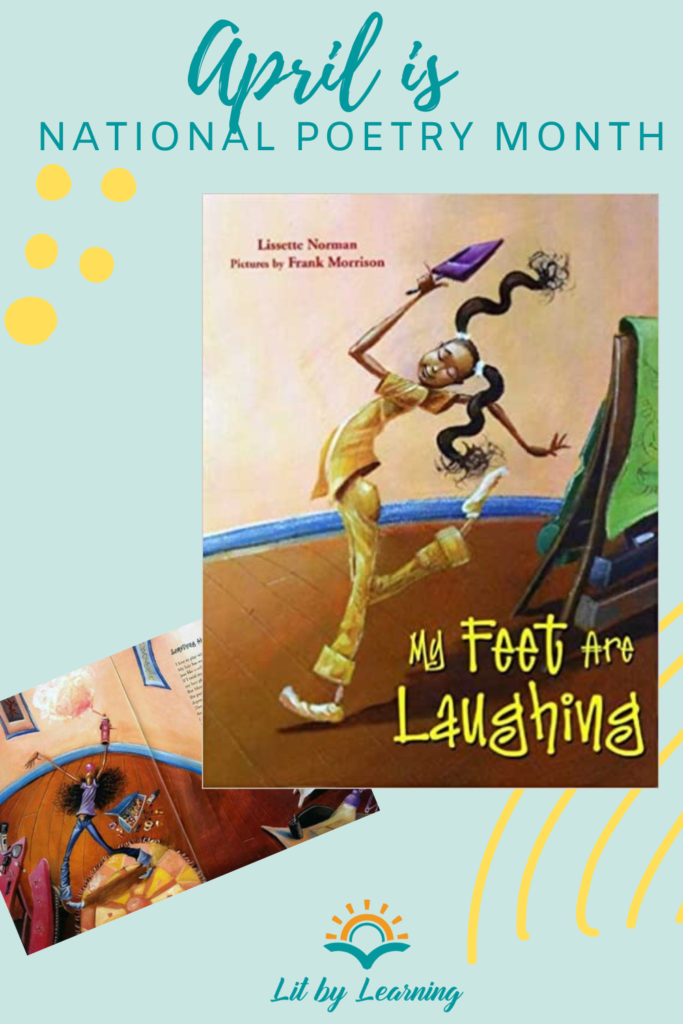
This whimsical prose poetry by Lisette Norman features a Dominican-American daughter of divorced parents. The poems discuss everyday things like needing to be quiet when adults are over to bigger things like remembering grandparents who have passed. I LOVE this wonderful children’s poetry book!
My name is Sadie
and I live in Harlem
with my mother
and my little sister, Julie.
My Feet Are Laughing by Lisette Normal
Children’s Poetry Book 5: Laughing Tomatoes
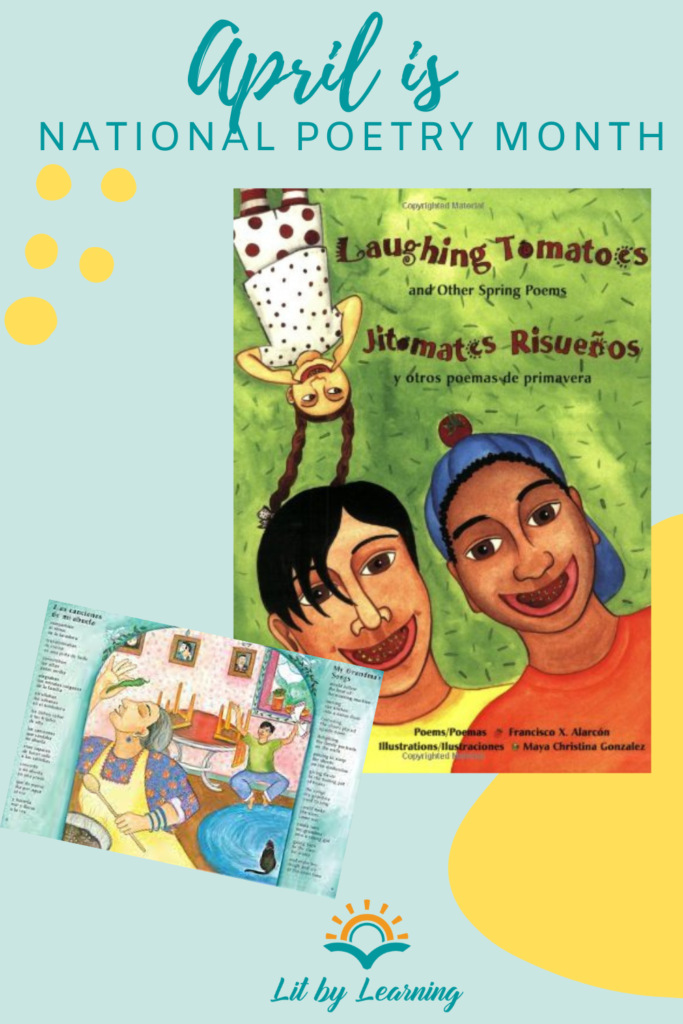
Ok, if you don’t yet know trilingual poet Francisco Alarcon, RUN (don’t walk) to get his English-Spanish poetry books NOW! I’m featuring this one because it’s about Spring, but ALL of his child-friendly books need to be in your classroom library for National Poetry Month April and beyond. From the artistic illustrations to the playful bilingual words, Francisco Alarcon is the most student-friendly poet I’ve found thus far. Enjoy books about Spring, family, and being bilingual in this wonderful poetry collection!
the hills
are starting
to crack
a green smile
once again
“Spring” by Francisco Alarcon (Laughing Tomatoes)
Shaking Things Up
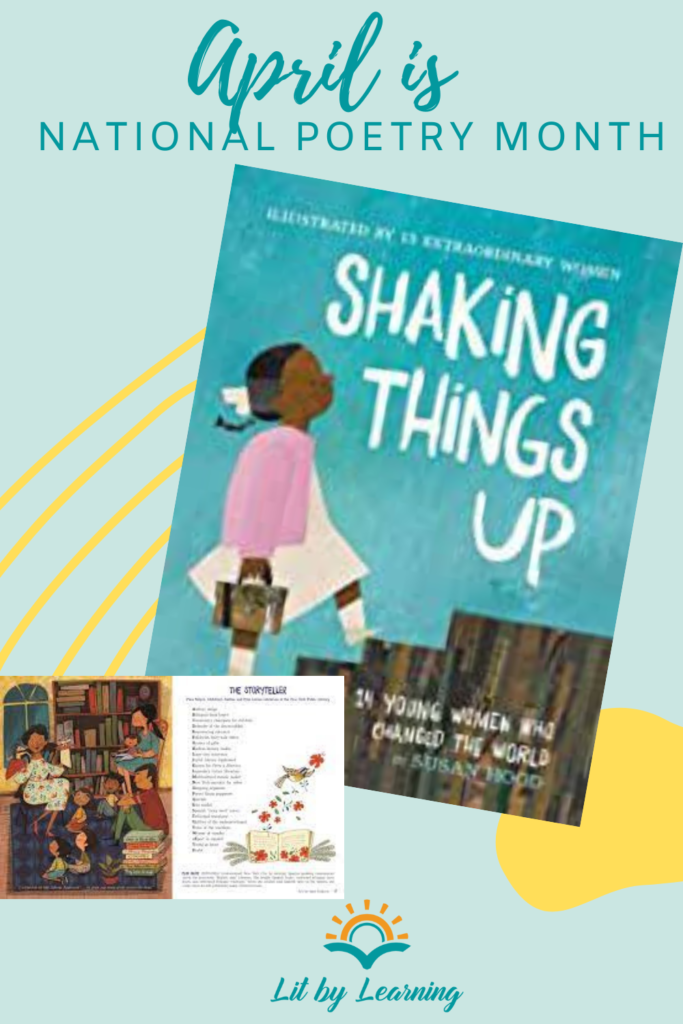
I just added this gem to my classroom library this year for Women’s History Month and WOW! It’s a gem that highlights 14 inspiring women leaders through different forms of poetry. Students love the variety of poems, the colorful illustrations – and making connections with the heroes featured. It’s inspired many a trip back to our library’s biography bin to continue our learning!
The news ricocheted around the world
but only her fear died that day
She said, “Strength, power, and courage were born.”
“Books, not Bullets” (Shaking Things Up)
Can I Touch Your Hair?
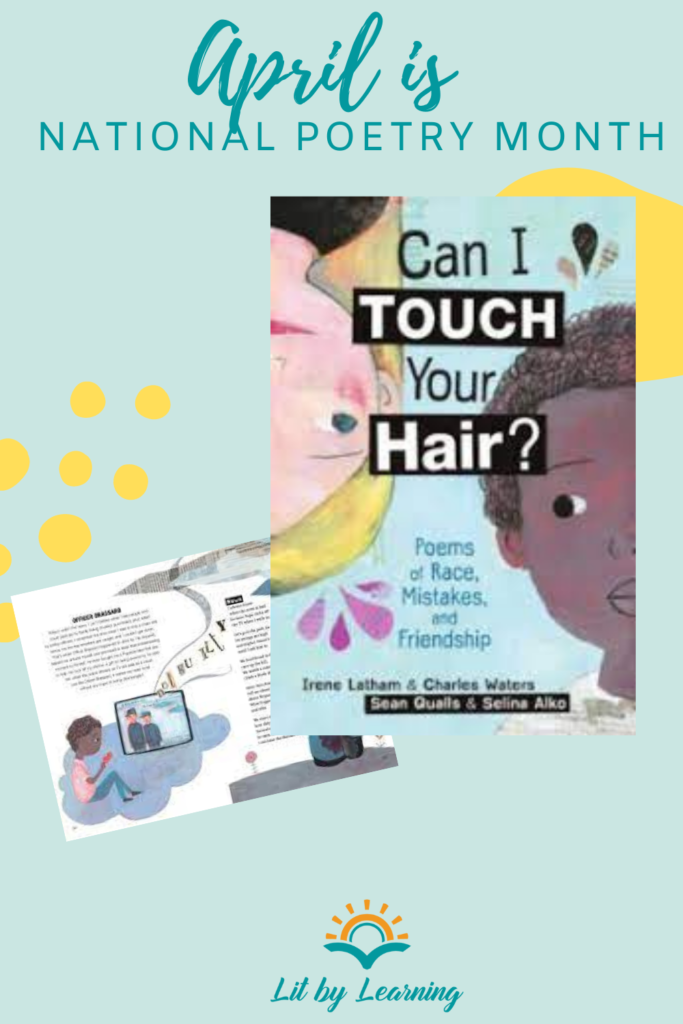
Poets Irene Latham and Charles Waters collaborate to highlight differences in perspectives between black and white 5th-grade students partnered together for a project. The poems in this book touch on their varying experiences of race, with topics from hair and food to police violence. My students and I have used the poem “Officer Brassard” several times over the years to discuss police and police violence – it’s an invaluable resource!
Only then does he tell me
about Trayvon
about Ferguson, Missouri
What happened
and why
“Officer Brassard” (Can I Touch Your Hair?)
Looking for elementary poetry resources for National Poetry Month April?
Check out these Lit By Learning resources!
- Poetry Analysis Activities
- Amanda Gorman Poet Study
- Playing with poetry: An introduction to poets’ tools!
Looking for more of my favorite children’s poetry books?
Head over to my book shop on BookSource.org!
